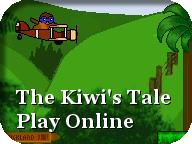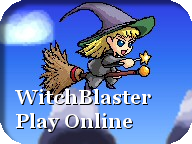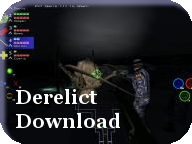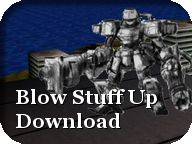Earok interviews Matthew Gatland
Submitted by Earok on Fri, 11/07/2008 - 21:18Matthew Gatland is an indie gamer and fellow AGW attendee. A few years ago he released a commercial puzzle title, which, unfortunately, wasn't a success. I was interested in finding out why and I thought that an interview with him would make a great blog post, as well as having invaluable advice for game developers looking to make their first commercial title. So here it is.
When did you start making games, and why?
I've been trying to make games for as long as I can remember. Before I learned programming, I wrote rules for board games and table-top games. When I was ten years old, I learned some QBasic commands from my brother and started making computer games instead.
What were the games and systems that got you interested in gaming?
I spent a lot of time with the Sega Master System and Sega Megadrive. My favourite Megadrive game was Sonic the Hedgehog 2. Where other platform games made movement difficult and slow, Sonic made it fast and fun. I still think Sonic 2 is the best platform game I've ever played.
On the PC, I remember connecting to a local BBS and playing the multi-player door game LORD (Legend of the Red Dragon). LORD inspired my earliest game projects. I also played DOS games: Captain Comic, The Incredible Machine, Civilization, Doom and Command and Conquer.
The board game HeroQuest also had a big effect on me. HeroQuest worked like a table top RPG, with a dungeon master controlling the monsters while players exploring a grid-based dungeon. After playing HeroQuest, I couldn't stand other board games where the playing pieces only moved along a fixed path.
What tools do you use for game development, and how did you learn the skills and knowledge to use them?
I have used Blitzmax (from New Zealand!) most recently. I learned Java at university but haven't used it much for game development. Before university, I picked up some QBasic and Visual Basic and learned more by making games. I got a lot of design ideas from playing and modding commercial games. One of my high school games copied the scripting system from Red Alert, the path navigation from Unreal Tournament and the awareness levels from Thief. (I got to see this game in action recently. I think it looks like it has a bit of promise if development ever started again - Erik)
Tell me about your commercial game, Trail Bay
When I was young, I thought making games commercially would be really cool. But then I found a whole lot of articles by games industry people that basically said that real games cost millions of dollars and that only well-established designers get to design them. I kept making games for fun but no longer wanted to work in a games company.
Later on, while I was a uni student, I learned about the 'casual game' phenomenon. It turned out that a whole lot of independent developers were making games for people who didn't play mainstream games. Small teams and even individuals were making games and actually making money from it - some of them actually did it full time. I thought that was really cool, and wanted to know if I could do it too.
Trail Bay was my attempt to make a casual game that people would buy. Trail Bay steals its gameplay from a free Flash game called Roadblocks. I decided to clone Roadblocks because I noticed that every time I showed it to someone, even people who didn't normally play games, they sat down at the computer and and I couldn't get them off. Roadblocks had terrible graphics, so I wanted to make a game that looked great but had the same addictive gameplay.
Why, in your opinion, do you think it didn't sell?
The gameplay wasn't quite right for the casual audience. Compared to a match-3 or a time management game, the puzzles were hard and didn't give constant rewards. But I think the main reason is that I didn't put enough into the game. There weren't enough levels and some of the graphics were rushed.
When I discovered the 'casual games' market, so did everyone else. By the time I finished Trail Bay, there was a lot more competition and the standards were much higher. Come to think of it, I also didn't do enough marketing. I didn't really do any marketing. That must have contributed a lot to the lack of sales, and the fact that I didn't think of that as soon as you asked the question probably shows that I'm not the kind of person who should be selling things as a business.
If you were to make another commercial game, what would you do differently?
Next time, I would only make a game that I was really passionate about. Making a game always takes a long time and always gets harder as it progresses, so I need to care about it to see it through. I don't know if that is the best way to get lots of sales, but it is the best way to make sure that the game gets finished.
I won't make another game for profit until I am prepared to give the business side more attention. I would need to invest time in marketing - some developers say that marketing is a bigger job than making the game. There are other issues too. For example, Trail Bay had text embedded into image files, which creates problems for translation. I didn't think about foreign language versions until it was too late.
Are you working on any projects right now, or planning to?
I haven't worked hard on a game since Trail Bay. I have ideas, and I've investigated things. For example, I've always wanted to make a first person shooter, so I spent a few days reading the source code of the open source FPS Sauerbraten. But I haven't started coding anything yet. I started making a simple platform game a while ago, and realised that I'd never coded proper collisions before.
I've been making games my whole life, but I've always managed to avoid having real collisions! Now I'm thinking that I should make lots of simple prototype games in lots of different genres, to hopefully become a more well rounded game designer.
What are your favourite free or independent games?
Cave Story - it has great gameplay and incredibly strong characters considering how few pixels and words are used to create them.
I'm also a big fan of Dejobaan Games' Inago Rage and The Wonderful End of the World. They both have a distinctive style and personality. You can instantly tell when a game is from Dejobaan Games. For an indie company, that's a really good thing.
Finally, do you have any advice for people who want to make their own games?
Yes: Just start. I only knew about three QBasic commands and that was enough to start making a text game. Once you start, you can learn the rest as you go. For your first few games, don't plan. This stops you getting stuck on ideas that are too complex for you. If you have a book full of game ideas, put it away until later. But the most important thing is to start. In fact, I need to take my own advice on that.
The website for Matthew's game, Trail Bay, is http://www.looseleafgames.com/. I recommend having a look at it, the game is actually quite addictive and charming. I look forward to seeing the game Matthew produces in the future.




